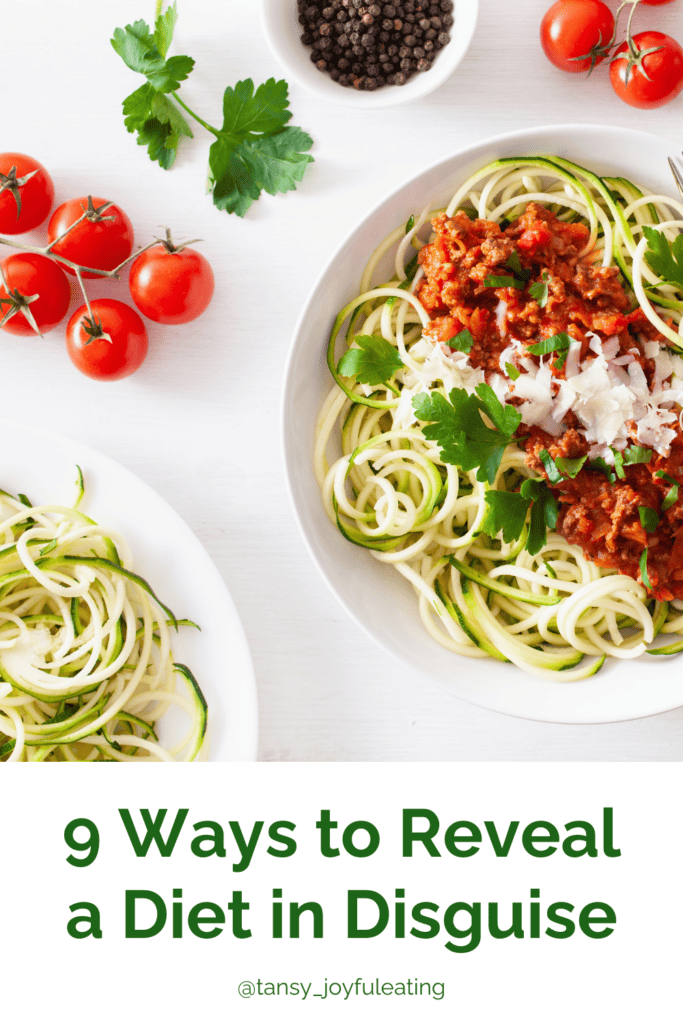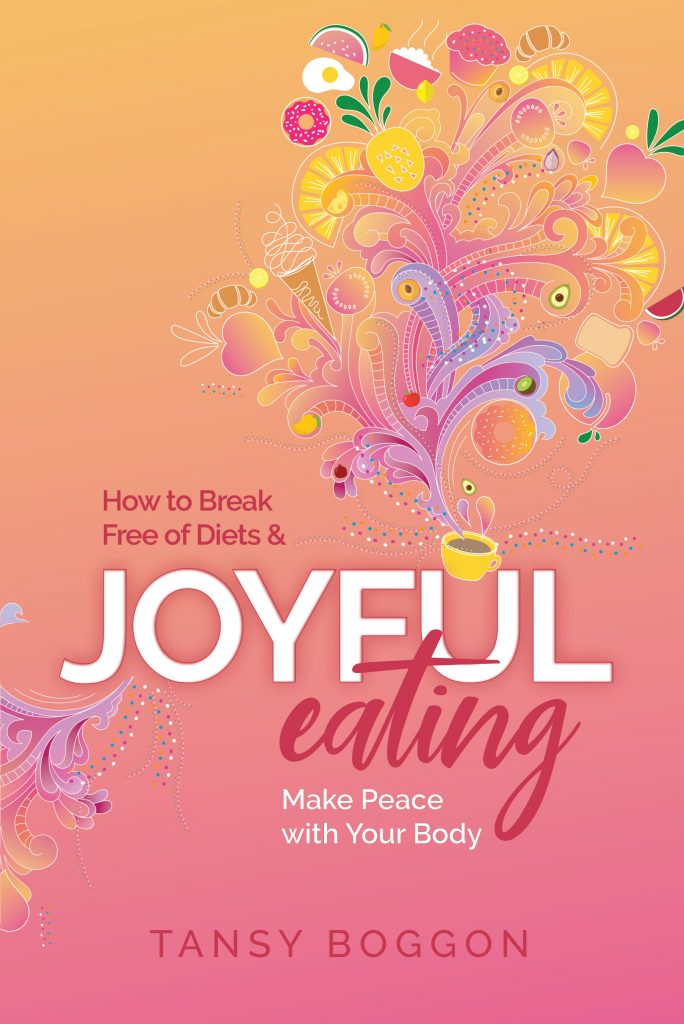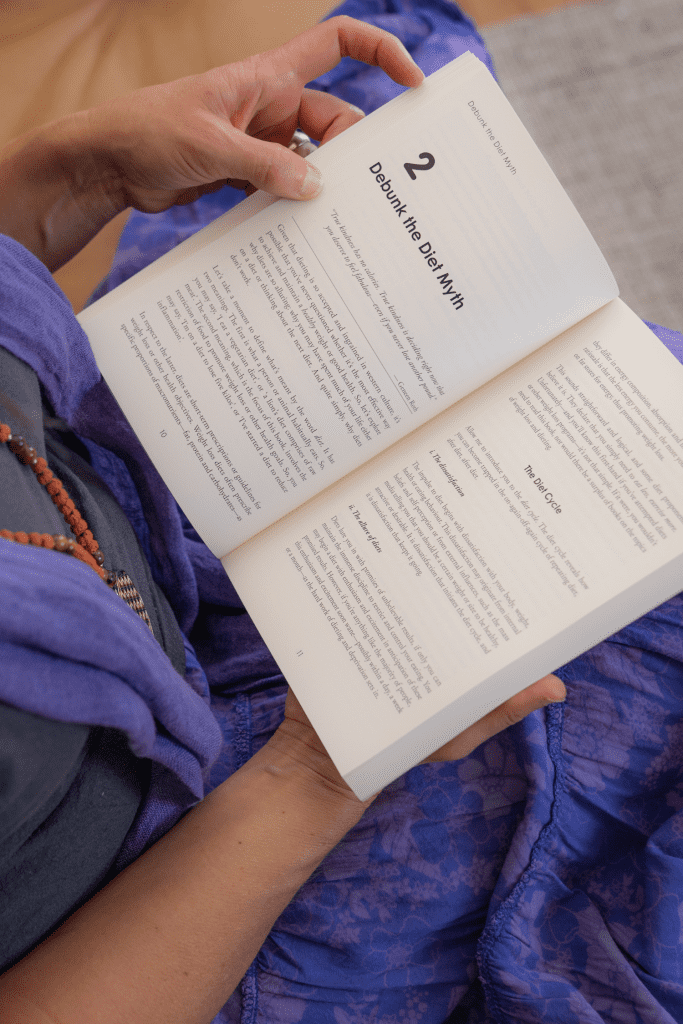It’s widely known that diets don’t work, yet many of us are still lured by diets in disguise, which may or may not proclaim weight loss. How do we spot diets in disguise, and why should we avoid them?
As an in-store nutritionist at a supermarket, I wrote a newsletter titled, ‘Diets Don’t Work’.
As people collected the newsletter and sampled nutritious morsels I’d prepared, I received nods of agreement to the newsletter title.
Recognition that diets don’t work
However, I began to realise that this agreement, in many cases, was not an acknowledgement that diets don’t work but that many people feel defeated by their weight or dieting.
Many people feel defeated by their weight or dieting.
One woman said, ‘Of course, diets don’t work.’ She pointed to her stomach. ‘Look at me. It’s pretty obvious.’
I had another lady email me to say, ‘I agree that diets don’t work. But I’ve recently come across one that does. Have you heard of the X#@x diet? The author is a doctor. I’m about to try it. I’ll let you know how it goes.’
Sadly, both women are still in diet mentality. They believe that they can either control their bodies or that there is a ‘perfect’ way to eat that they have yet to find.
To reply to the second lady’s email, I googled the diet she mentioned. At a glance, I found a list of foods she could and could not eat and times of day she could eat them. Straight away, I could see that it was a diet.
What is a diet?
Diets are prescriptions or guidelines for weight loss or other health objectives.
A diet not only restricts your energy intake but is any protocol of eating that comes with a set of rules.
So, it is any eating plan.
Even those programs that declare to be a healthy lifestyle change or promise to reset your metabolism or cure whatever ails you.
We are constantly being sold diets in disguise.
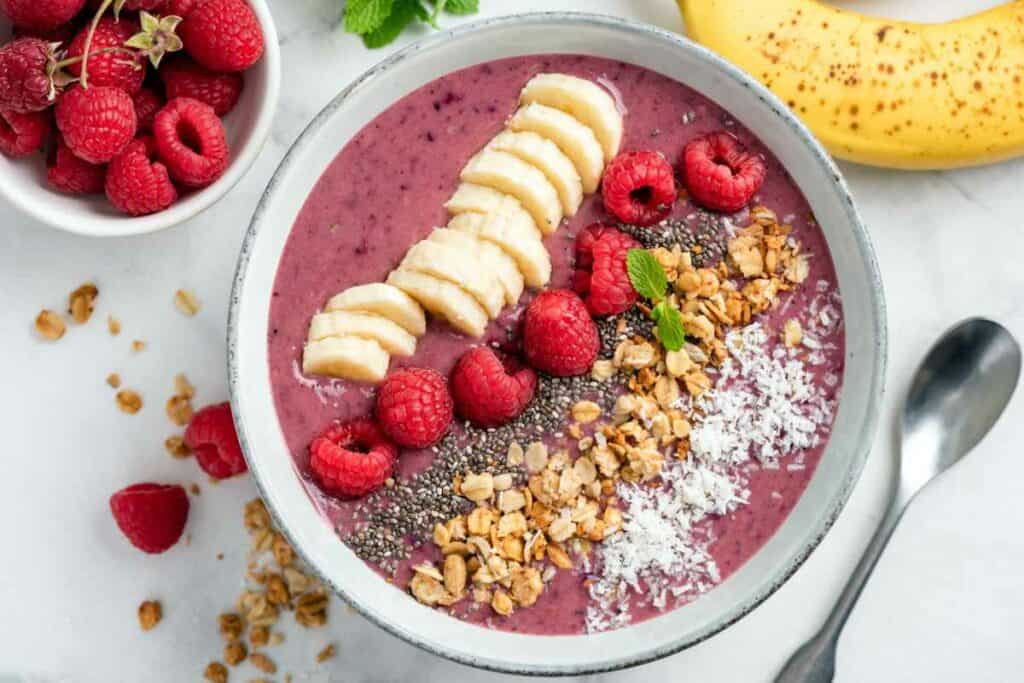
Diets in disguise
Diets in disguise are any program or protocol that declares it is not a diet. When, in fact, it is.
So, how do we spot a diet in disguise?
It promises weight loss? It’s a diet.
Weight loss is frequently listed as a health benefit alongside increasing muscle mass and energy or cleansing and healing your body.
The insidious message is that weight loss is possible on the so-named program and that weight loss is healthy (when you can improve your health irrespective of weight).
These lifestyle programs can provide a glimmer of hope that you’ll achieve a ‘healthy weight’ when your health improves.
If you believe weight loss is healthy, this logic will remain: you have not ditched the diet mentality.
I write about how the goal of weight loss can undermine and sabotage your health in my blogs:
- How the goal of weight loss can undermine health
- How the goal of weight loss can sabotage your health
At face value, aspiring for health can seem to be an improvement over adopting extreme and potentially harmful methods in the pursuit of weight loss. However, switching your goal to healthy lifestyle changes can be just as restrictive and stressful.
A diet is not only an eating plan for weight loss but any eating plan that restricts and controls your eating.
It comes with a list of rules? It’s a diet.
Often, the eating plans or lifestyle changes that replace calorie counting involve cutting out entire food groups, requiring diligent meal planning or eating substantially differently from social norms.
Not only do these lifestyle changes often come with stringent rules, but they can also provoke anxiety and be socially isolating.
It’s even possible that you believe your friends are attempting to poison you (or sabotage your health) with their grandmother’s fruit cake or other harmful substances such as gluten, sugar, honey or, as is the case with some popular diets, bananas.
No matter how alluring the names and the stated health benefits of many popular lifestyle programs, they are typically diets by another guise.
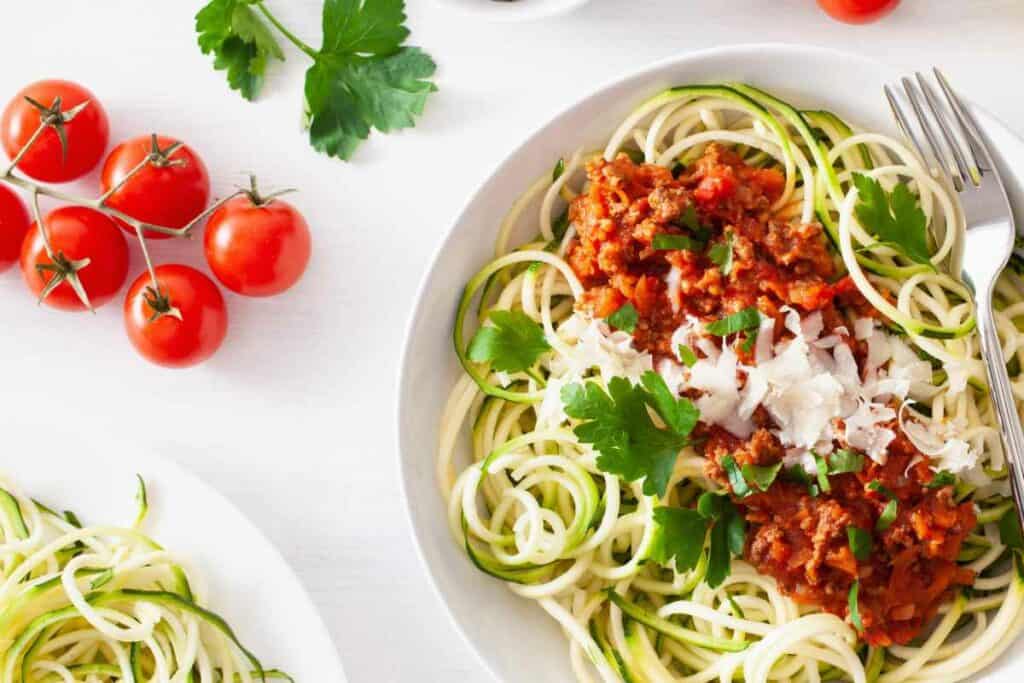
9 Ways to reveal a diet in disguise
You are on a diet if you either think or declare:
- ‘x’ food is better than ‘y’ food
- ‘I shouldn’t eat that’ or ‘I should eat this’
- I must avoid gluten / sugar / carbs / wheat / legumes / buffets / drinks with colleagues, etc.
- I can have cheat days
- I’m not doing it right
- I need to do my 60-minute exercise session no matter how tired I am, make that 90 minutes if I’ve eaten too much
- I need to fill up on a piece of fruit at the start of every meal so that I don’t eat too much
- I shouldn’t eat after …
- If it’s not / paleo / raw etc., it’s not good for me
Excerpt from my book Joyful Eating (Section: The it’s not a diet, diet).
Joyful Eating: How to Break Free of Diets and Make Peace with Your Body
“… practical tools to help people release their sabotaging thoughts, enabling them to eat more intuitively and find joy in the moment.”
— Michelle Stanton, author of The Timeless World.
Don’t guilt yourself for falling for a diet in disguise.
I’ve been there and done that! See my blog on my raw food diet days and my journey to healing my relationship with food.
It’s because I’ve fallen for these ‘diets’ that I’m so passionate about sharing this message.
How harmful are diets in disguise?
Any pursuit of the ‘perfect’ diet and obsessively following food rules can lead to feelings of immense guilt and shame, anxiety, social isolation and even malnutrition and eating disorders.
It is assumed that the pursuit of health and eating healthy is admirable, as we are all encouraged to do so.
However, as with any diet, whether the focus is on the quality or quantity of what we eat, it can lead to emotional and physical consequences or diminish our quality of life.
Food and eating shouldn’t become the central focus of our lives or cause of distress or fear.
I talk about the harms of taking healthy eating too far in my blog on orthorexia and my blog where I discuss the harms of wellness diets.
How to avoid diets in disguise
I acknowledge it can be hard not to be lured by the next diet trend.
However, we can only be tempted when we think something is wrong with us, or we’d be healthier or happier if we changed our bodies. This is a lie we have been fed.
We can adopt lifestyle behaviours that may improve our health or quality of life without weight loss (or a focus on weight loss). Yet, we do not have a moral imperative to do so. Nor is it guaranteed to improve our health.
For this reason, I advocate for a joyful approach to eating that does not involve fighting against the body we have.
Download the FREE Chapter: Debunk the Diet Myth
Discover the physiological and psychological reasons why diets don’t work, whether for weight loss or a wellness diet that promises ‘optimal health’.
Joyful Eating: How to Break Free of Diets and Make Peace with Your Body
Discover why diets don’t work
If you’d like to learn more about why diets don’t work and the alternative to dieting, you may find my article in Yogahood helpful, Dieting to lose weight? Pssst…it won’t work.
I also delve deep into the physiological and psychological reasons why diets fail in the Joyful Eating chapter, Debunk the Diet Myth, which you can download for FREE as a PDF.

